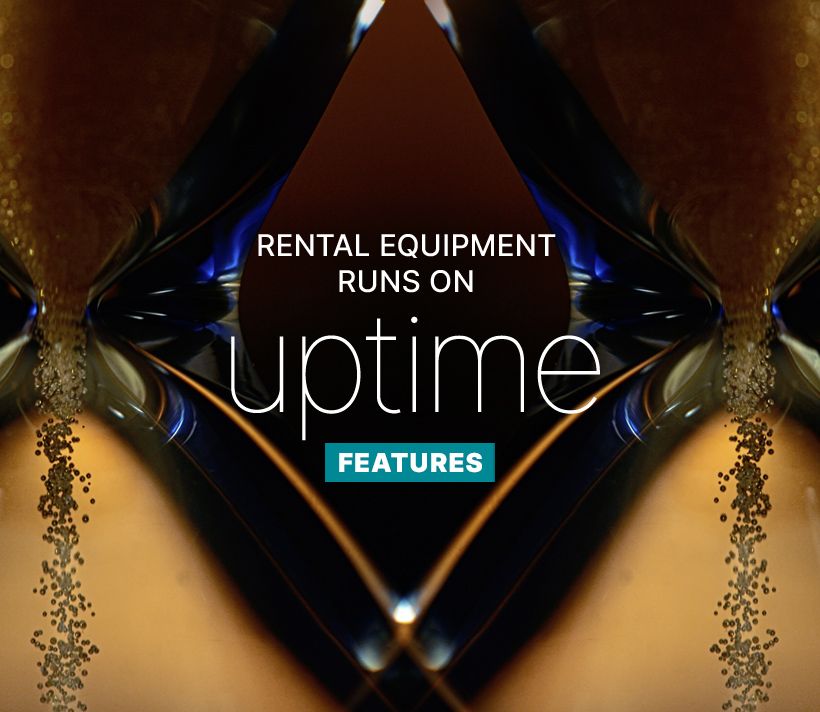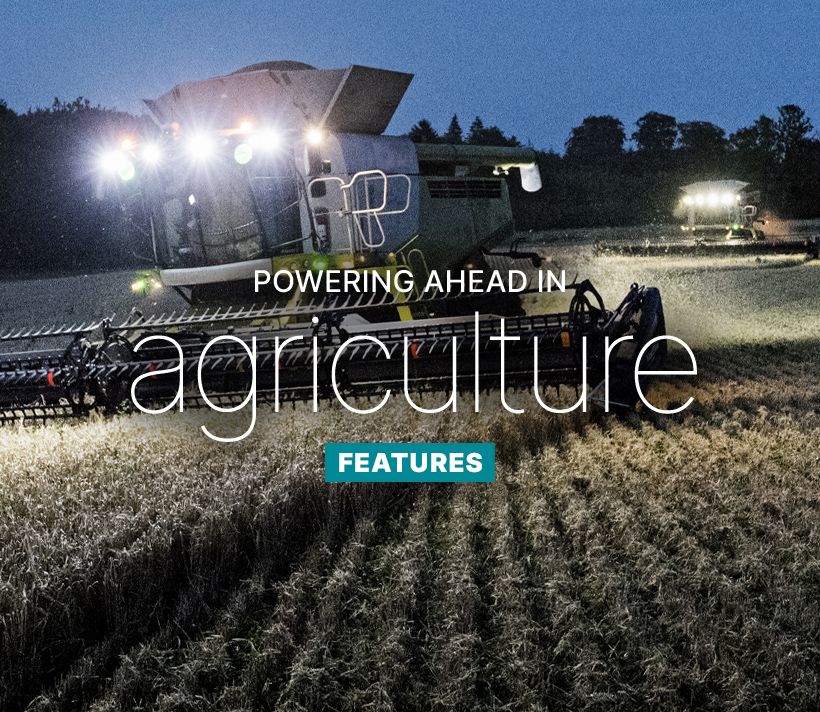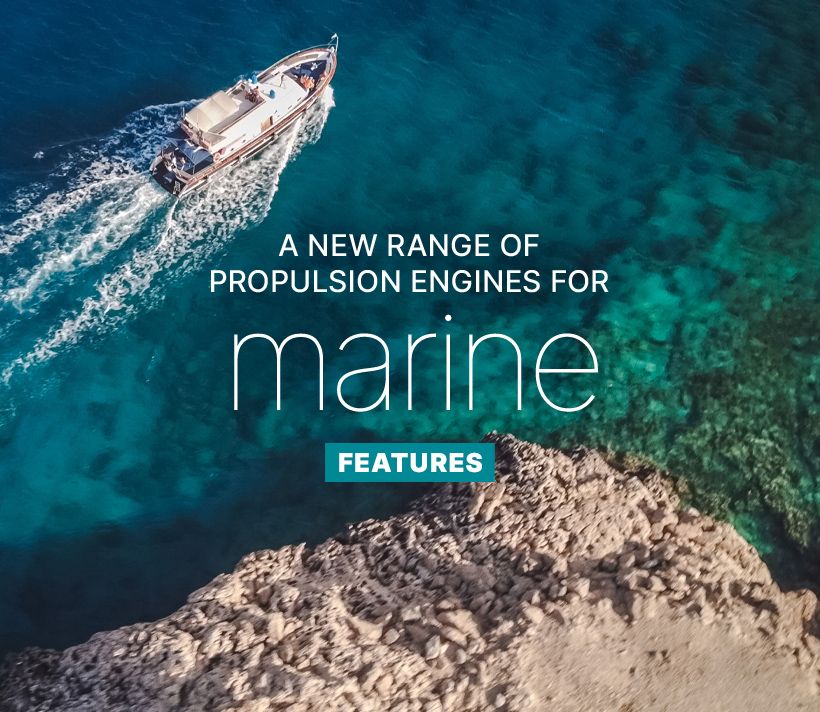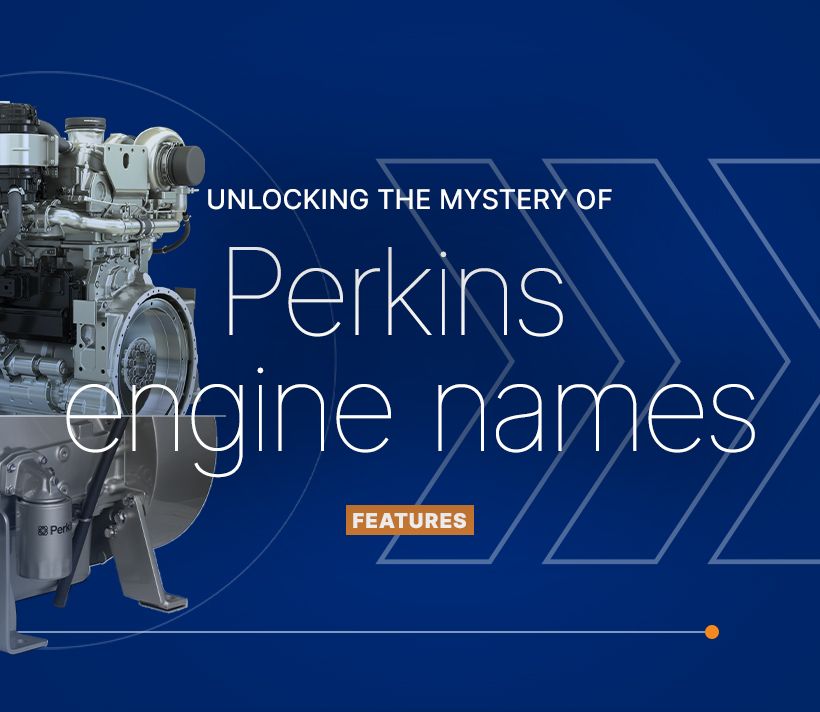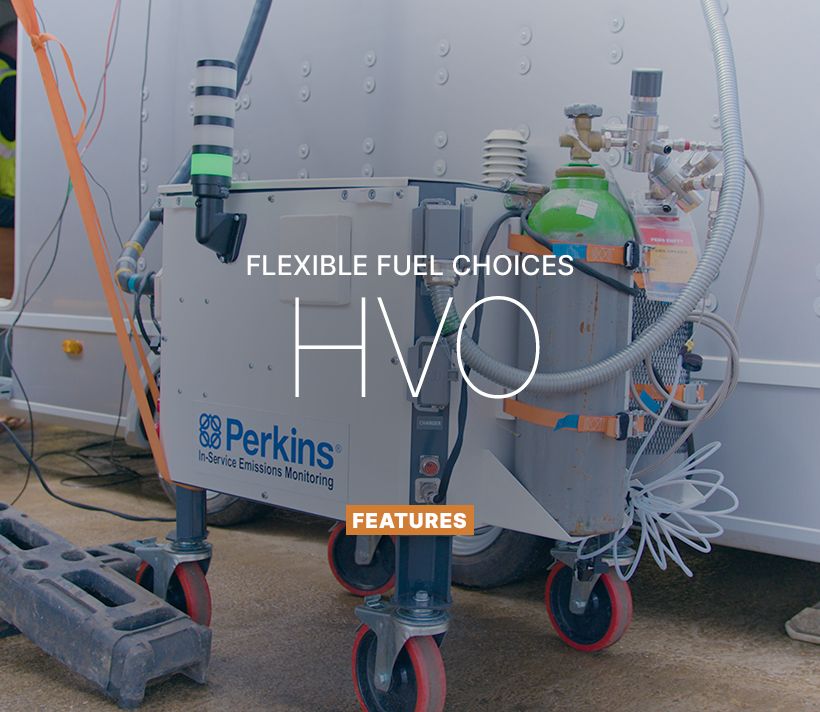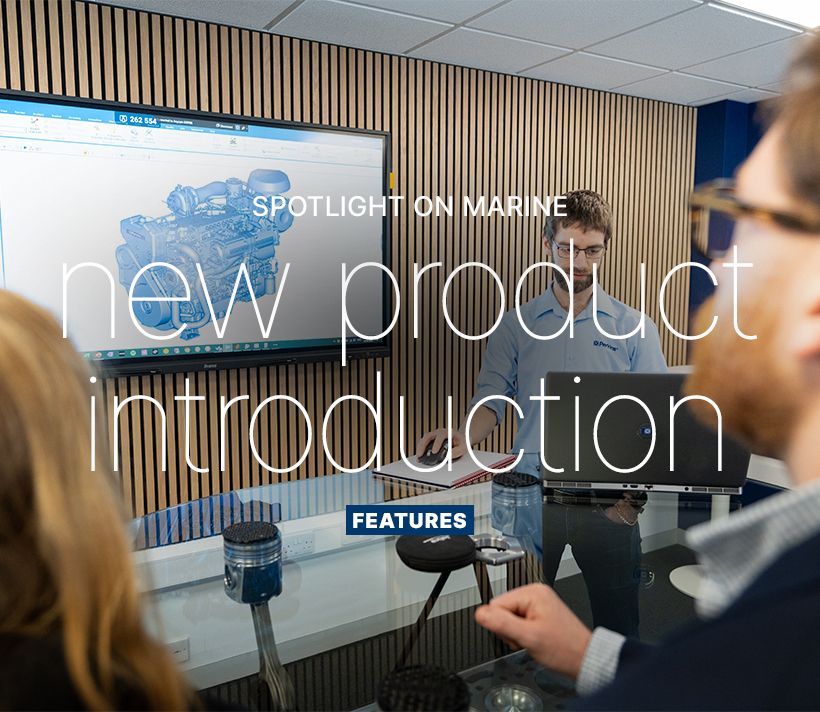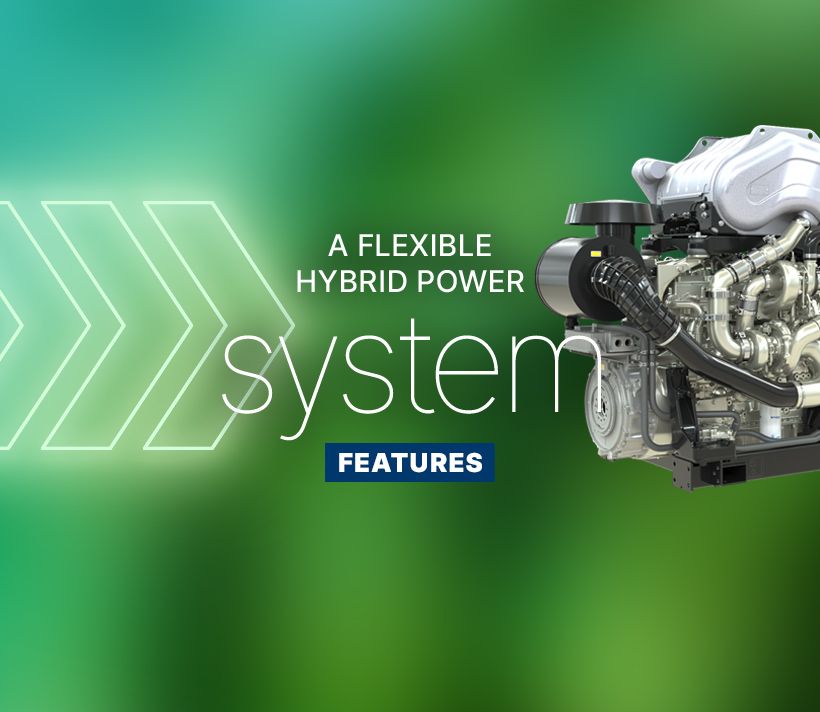Today, the challenges faced by those customers are changing as they navigate the path to a more sustainable, lower-carbon future. New fuels, sophisticated electronic engine controls, advanced emission reduction technologies, unprecedented connectivity and exciting new hybrid powertrain concepts are all part of that future.
But, the need for maintenance and service provided by highly trained technicians using high quality parts is also a key part of that future. Because, as engines and machines grow more sophisticated, the ability to keep them running efficiently for the longest possible time becomes a key requirement for effective sustainability.
Perkins engineers will design and build the engines, and the Perkins aftermarket parts and service team along with the global Perkins authorised distributor network will supply the programmes, parts, people and expertise to help keep them performing at peak efficiency.
The story behind the Perkins® Ecoplus fuel filter is a good example of how the process works.
One-piece, ‘can-type’ filters are an old technology with certain limitations. So, Perkins set out to create a better solution.
The answer was a two-piece filter using a disposable, engineered filter element inside a reusable plastic canister. The element is wrapped in fibreglass spiral roving to hold the media in place to prevent the pleats from flexing. This improves particle retention and holding capacity. while the plastic centre tube has been shown to increase resistance to collapse.
This Perkins® Ecoplus technology is applicable to both fuel and oil filters and by avoiding the use of metal canister it substantially reduces the impact on both production and disposal. It also produces a significantly more effective filter.
In head-to-head tests against competitive filters, Perkins Ecoplus fuel filters demonstrated that the unique features of these filters can increase injector life by a full 45 percent. That, of course, means that all things being equal, an engine using genuine Perkins Ecoplus fuel filters is likely to run more efficiently for a longer time than the same engine using a competitive filter.
Considering the extremely tight tolerances found in today’s engines along with higher operating temperatures and fuel pressures, the impact of a Perkins Ecoplus filter on sustainability can be substantial, not to mention operating and maintenance costs. Some owners might not make the connection between saving a little on a filter and spending a lot on an ‘unexpected’ repair, but that doesn’t mean the connection isn’t real.
With Perkins Ecoplus filters, the engineers designed a better solution, the aftermarket team makes it available, and Perkins authorised distributors install it as part of their commitment to using only genuine Perkins parts. End users of Perkins powered equipment reduce their environmental footprint and take another step on the journey to sustainability.
This is one example of the truism that the people who design and build an engine are likely to be the best source of information about how it works, how it’s made and what it needs to keep working efficiently. The story behind the recently introduced single cylinder repair sleeves for Perkins® 1100 Series engines provides another.
The Perkins 1100 Series was introduced in 2003 and has become an extremely popular choice to power a broad range of mobile equipment, generator sets and other applications. Many of these engines have now accumulated enough operating hours to be nearing time for an overhaul, and many more will be in the next few years.
The typical procedure is to re-bore all of the cylinders and fit a set of oversize pistons during the overhaul. All of the pistons have to be replaced as a set to keep the engine properly balanced, so individual cylinders can’t be repaired with this method.
The alternative is to install a sleeve in a single bore which will return it to the original dimension so standard size pistons can continue to be used. The bore still has to be enlarged to accommodate the liner, but, when done correctly, significantly less material has to be removed and only from the bore, or bores, being repaired.
From a sustainability standpoint this means the block is more likely to be repairable and the energy and materials used to produce it only have to be expended once. The additional energy required to re-bore a cylinder and fit a sleeve is much less than would be expended to produce a new block, or even to re-bore all of the cylinders. Other mechanical wear or failures may occur, of course, but “sleeving” can substantially extend the life of the major casting.
Perkins has never offered individual repair sleeves. But, customers have consistently asked for them and a number of aftermarket solutions have been developed and sold.
As the 1100 Series engines neared overhaul, however, the voice of the customer clearly said it was time for a genuine Perkins solution. So, the engineers who designed and built the 1100 Series went to work. Their intimate knowledge of the engine dictated a complex test and evaluation process to make sure the new liner would perform up to Perkins standards and customer expectations.
The sleeve, for example, is made from the same material used in the block so the wear, thermal and machining characteristics are well known and predictable. Candidate liners of various thicknesses were tested before arriving at the optimum dimension. Thermal transfer characteristics between the liner and block were studied and optimised.
High and low temperature performance was evaluated, along with wear characteristics, results from accelerated wear tests and the impact on emissions. All of these, simulations and tests finally produced a validated product that met the standards for a genuine Perkins part.
Because a well worn engine may no longer have perfectly round or cylindrical bores, the engineers decided to produce the new sleeves in an unfinished state. This allows the installer to perform a finish bore and then hone the sleeve to produce the correct surface finish. As a result, when installed and machined to Perkins specifications, the repair sleeves will meet emissions requirements.
Both of these examples are products of Perkins’ focus on resolving issues that impact our customers and potentially impede their efforts to achieve greater sustainability and lower-carbon impact. Genuine Perkins parts are the foundation of a customer-first commitment that spans everything from engineering and production to distribution and installation.
Programmes including Perkins® Hypercare and Perkins® Platinum Protection deliver genuine parts, trained technicians and comprehensive service to Perkins customers operating virtually anywhere in the world. A well-maintained engine is a more efficient engine that lasts longer, costs less to operate and has the minimum possible impact on the environment.
As technology evolves, Perkins will continue to innovate and deliver solutions that help our customers achieve their vision of a sustainable, lower-carbon future. This isn’t the end of the story, however. That future is connected and Perkins is going to have some exciting things to say about that very soon.
Perkins’ collaboration with Trackunit, delivering real-time insights to customers, increasing productivity in the field.
Read moreFor industrial equipment rental, excellent technical support and parts availability is a necessity.
Read moreTo mark Agritechnica's 'Celebrate Farming Day', Powernews spoke to Andy Curtis, Customer Solutions Director at Perkins.
Read moreClever configuration options fulfil the current and future requirements of the industry.
Read moreWho keeps the lights on when the grid can’t? The power generation sector, of course. In the UK, its interests are represented by The Association of Manufacturers and suppliers of Power generating Systems (AMPS) – whose new director general, Alan Beech, came into post earlier this year.
Learn MoreHave you ever looked at the name of a Perkins engine and wondered what all those numbers and letters actually mean? If so, you’re certainly not alone. But rest assured the nomenclature is anything but random.
Read moreOne alternative fuel option we’ve researched heavily and have accommodated in our diesel engines for more than a decade is hydrotreated vegetable oil (HVO) – which must meet the EN 5940 standard – with the Perkins® 400 to 5000 Series able to use up to 100% HVO.
Read moreIn part two of our spotlight on marine we talk with Ben Lewis commercial manager, Dave Wood, application and tech support team lead and Stuart Phillipson, marine application and tech support to find out more about what’s in development for the marine range.
Read moreWhy stick to one fuel, when you can have a configurable power system?
Read moreMore than just a curiosity, they offer us different routes to future food security.
Read more
